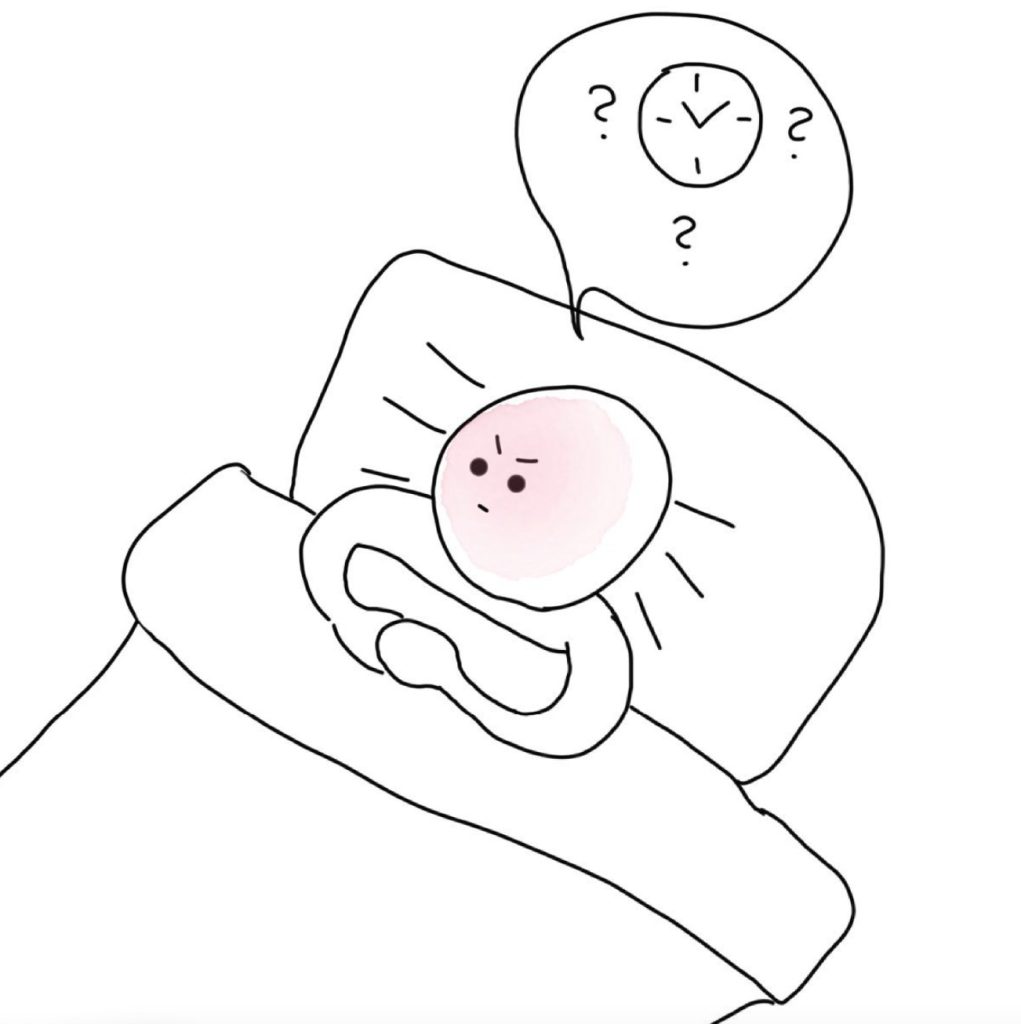Have you ever experienced this? You lie in bed hoping for sleep to come and your attention finally starts drifting away… when BAM! You realize that you’re about to fall asleep and the wave of anxiety covers you completely, making you awake. It’s frustrating, it’s annoying and it feels like it will never go away.

Hyperawareness, self-monitoring, hypervigilance – are the terms people with insomnia use to describe this situation. Having gone through this myself, I can say that this is – if not the worst, then one of the worst experiences during insomnia. Clients often mention this experience in the coaching sessions and I decided to dedicate an article where I put my general thoughts on that. And spoiler alert: we can overcome this experience!
Where hyperawareness comes from
Hyperawareness is a state of being excessively aware of what is happening to you on the inside and the outside. It is an ongoing painful analysis of any signals that we receive from our environment as well as our emotions, thoughts and physical sensations.
For example:
👉 You see it’s getting darker outside and you feel the fear of the upcoming night.
👉 You go about your day and you get visited by a thought: “what if I won’t sleep tonight again?” – and you begin feeling anxious.
👉 You wake up in the middle of the night and you feel your heart racing – you get more nervous and unable to get back to sleep.
Before we do anything about this hyperawareness, we need to understand that it happens automatically. We can’t directly control our focus when the brain detects a potential threat. When our “fight or flight” mode is on, it is natural that our senses become stronger and the area of focus narrows down.
That means that even the things that we normally would enjoy doing stop having such an effect on us because to the brain the biggest priority is to get us to safety.
When it comes to insomnia, the brain is trying to protect you against not sleeping and anything that threatens your sleep is seen as a potential danger. However, physically we are safe throughout the night and wakefulness is not a real threat, but our brains can’t tell the difference.
Why hyperawareness interferes with our sleep
As the result, the moment of falling asleep becomes so important, that our brain is now trying to get it under control. It wants to make sure we “cross that bridge” to sleep and thus get to safety, and moment we feel we are about to fall asleep, the brain goes like “Attention! Now, don’t screw this up!”.
Ironically, such a response introduces awareness into the process that is not meant to be monitored. We are never aware of the moment when we start sleeping. Never.
So by being aware of ourselves falling asleep, the moment of falling asleep gets postponed a little.
And here is the tricky part: since hyperawareness is automatic, when we try to approach it head-on, it will not stop. We need a different approach.
How to approach hyperawareness
I’m going to share my personal experience here. I know that it might not fit everyone but that’s okay – we are all different.
I believe that the core of this issue is what hyperawareness means to us. For many people, including myself back in my insomnia days, being hypervigilant is seen as the direct obstruction to sleep. It’s seen as something that should not be happening. Well, it’s true, but…
It also has a different meaning, a more positive one. And re-defining hyperawareness and changing the way we think about it is what can set us free from it.
As I wrote earlier, all our brains want in those moments is to cross the bridge to sleep. And often we feel like that mechanism is broken or that we forgot how to sleep – we feel zero confidence in our ability to sleep.
Now the good news for you: you didn’t forget how to sleep, the mechanism is not broken – it is physically impossible to lose that natural ability to sleep. It is still there, within you, waiting for the brain to put down its defense mechanisms and feel safe. You don’t have a direct access to it, because no one can fall asleep on command, but we can turn a perceived enemy into a friend, thus turning off that fight or flight mode.
Have you noticed how that painful awareness happens just before you are about to fall asleep? How about we celebrate it? 🙂 The body is literally trying to fall asleep and the fact that we feel that moment is the proof that all mechanisms are working properly.
The body keeps initiating sleep and we can welcome that moment, even if it is full of that unpleasant feeling. The most important thing is sleep is on the way.
Hyperawareness is a GOOD sign, too
Changing the way I meet that hyperawareness was a game-changer. Yes, that annoying feeling kept coming for a while, but no longer was I resisting it much because I knew it was bringing the good news. Sleep is coming. And gradually the brain stopped caring whether I was aware or not, suddenly I started falling asleep and not remembering how that happened!
You can meet that hyperawareness with a simple act of acknowledging it, like “Here it goes. Here it goes again. And again…”, or imagine them as the waves coming to you and willingly diving into those waves. You can choose any form of acceptance that feels natural.
The beauty of that approach is that you can use it not only on hyperawareness, but also on hypnic jerks that happen before you fall asleep. As annoying as they can be, they do show that your body is doing its job properly and they eventually subside without a fight.